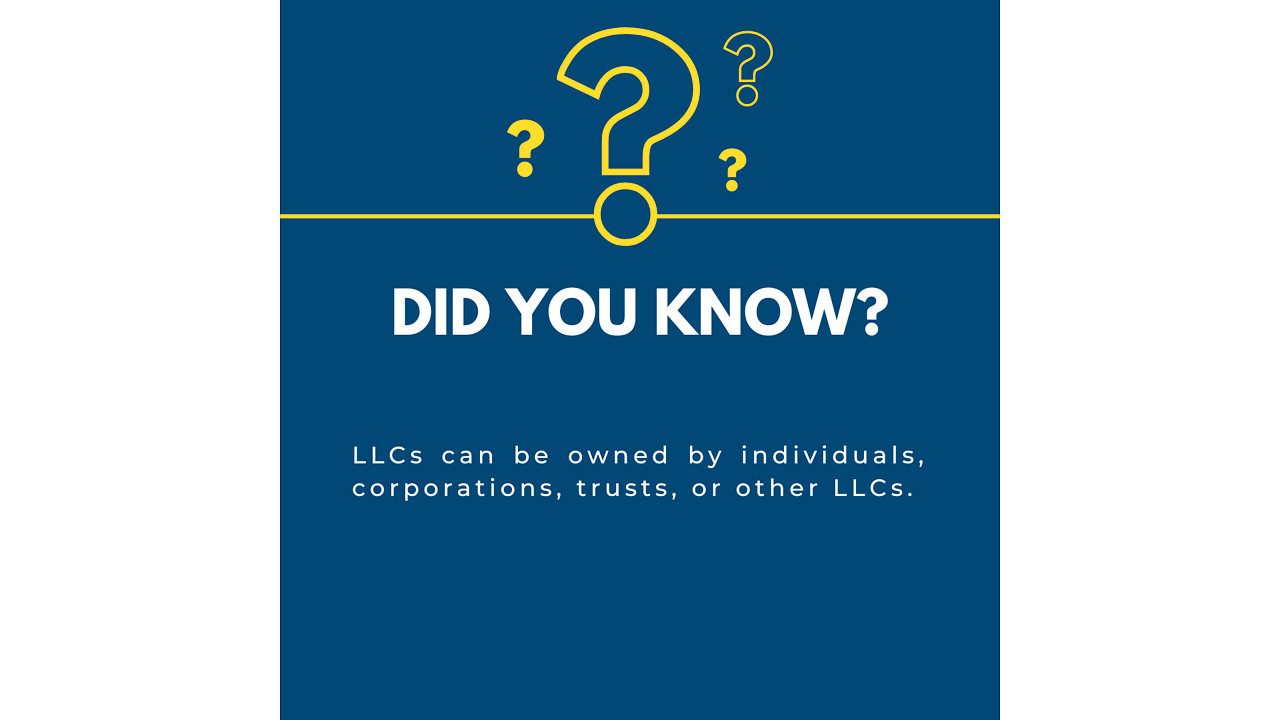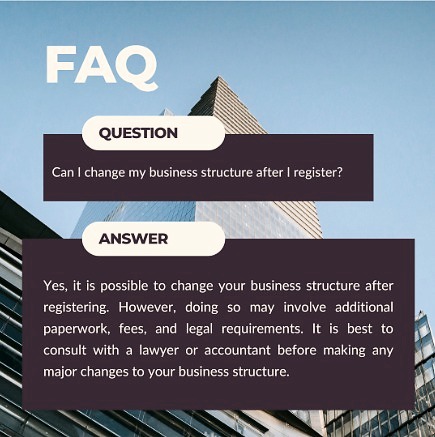
views
However, how do you initiate the process?
If you want to transform your hobby into a lucrative enterprise, creating an LLC is a widely used and successful approach to safeguarding your personal possessions and acquiring the advantages of an official business framework.
This article will assist you on how to start an LLC by leading you through the steps, starting with selecting a name and concluding with submitting the necessary documentation, so you can concentrate on advancing your business with certainty. Let’s begin!
Create an LLC with ZenBusiness >>
How to Start an LLC in 7 Simple Steps
Many small business proprietors opt to open an LLC to benefit from the safeguard it offers against liabilities. An LLC is a separate entity from its members or owners that absolves them from bearing the responsibility of business debts.
If you plan on starting an LLC, you must file the necessary documentation with the state where your company is based. Each state has its own regulations and processes; however, regardless of your location, there are several steps you must take to open an LLC.
Try ZenBusiness to Create an LLC >>
Step 1: Choose and Reserve a Name for Your LLC
In most states, it’s not permitted for two separate business entities to have identical names. This means that even operating in different cities, “Joe’s Donuts, LLC” and “Joe’s Donuts, Inc.” cannot share the same name.
Furthermore, some states have limitations on the use of specific words in company names, such as “bank.” To verify if a desired LLC name is available, conducting an online search of existing business names in several states is advisable.
It’s essential to check the name’s availability in the state before filing LLC documents, as it’s an essential step in starting an LLC. Apart from abiding by state laws, it’s advisable to investigate whether businesses similar to yours in the locality have adopted identical or similar names. Opting for a distinctive name can prevent misunderstandings and allegations of trademark violation.
It’s worth checking if a domain name corresponding to your business name is accessible.
In case you have selected an available LLC name but aren’t immediately filing your LLC documents, it might be wise to reserve the name. Each state provides the option to reserve a name by submitting a form and paying a name reservation fee. However, the duration of the reservation period, fees for filing, and policies for renewal differ from state to state.

Step 2: Choose a Registered Agent
Most states mandate Limited Liability Companies (LLCs) to assign a registered agent, also known as a statutory agent, when it comes to how to start an LLC. The registered agent is responsible for accepting legal actions, subpoenas, and other official papers on behalf of the LLC and delivering them to the correct person at the organization.
In most states, any individual who is over 18 and resides in the state can serve as a registered agent, including an officer or member of the LLC. Companies such as Northwest Registered Agent offer registered agent services for a charge.
Step 3: File Organizational Paperwork with the State
Starting an LLC in each state requires following a specific process and documentation. Typically, the process involves submitting articles of organization that include details such as
- The registered agent’s full name and mailing address
- The purpose or motivation to open an LLC
- Typically, the person forming the LLC must sign the paperwork
- The company’s full name and mailing address
Submit required documents to the secretary of state in the majority of states. However, certain states may have alternative divisions responsible for processing business filings. Although all states have a filing fee, the cost to open an LLC can vary by state.
Step 4: Prepare an LLC Operating Agreement
If you want to know how to start an LLC, a detailed plan known as an LLC operating agreement outlines the procedures and guidelines for running your LLC.
This document covers crucial aspects such as the distribution of ownership interests and voting rights among members, the allocation of profits and losses, the conduct of meetings, and the management of the business.
It outlines the rights of members in the event of death or departure from the company and the process for dissolving the company if necessary. In most states, the operating agreement isn’t mandatory to file and may not be a legal requirement. Nevertheless, it’s crucial for business owners who open an LLC to establish their obligations and entitlements clearly, and to prevent any potential disputes in the future.
Step 5: Determine the Licenses Needed
Once the formation documents of an LLC are submitted and authorized, the state will provide a certificate or another form of documentation verifying the existence of the LLC. Upon receipt of the certificate, it’s possible to identify any licenses or permits, such as a zoning permit or liquor license, that may be necessary for the operation of the business.
Step 6: Get an EIN
Afterwards, it’s important to obtain an Employer Identification Number (EIN), which is comparable to a Social Security Number for your company. The EIN is exclusive to your business and is essential for various business-related requirements such as banking, taxation, and personnel recruitment.

Step 7: Register to Do Business in Other States (Optional)
If you’re wondering how to start an LLC that conducts business in multiple states, it may be necessary to register in those states. This requires the completion and submission of paperwork similar to what was filed during the LLC’s formation.
It’s also necessary to have a registered agent in each state where the LLC operates. When a person opens an LLC, setting up and maintaining an LLC is generally straightforward in most states, but it’s essential to accurately complete paperwork and establish an operating agreement that outlines members’ duties and privileges.
Try ZenBusiness to Create an LLC >>
Important Steps to Follow After Forming an LLC
File Annual Reports
Typically, this particular stage is relevant once you have completed a tax year, but it’s essential to be aware of it at this point.
A yearly summary, also recognized as a “statement of information,” offers important information about your enterprise to your state, including any modifications or data that have occurred since your previous reporting period. It’s important to allow your state to notify you of any new legal obligations, including obtaining licenses necessary to maintain your business operations.
Establish a record-keeping method that documents all of your company’s transactions, which will save you from having to search for essential documents when a deadline is approaching.
What Should You Include in Your Annual Report?
It should be noted that each state has its own set of laws and regulations regarding LLCs, with differing requirements for annual reporting.
When starting an LLC, the contents of an annual report typically consist of
- Filing instructions for the yearly report
- Details about your company’s designated agent
- Numbers that are crucial to the identification of your company
- Your company’s raison d’être
- Where you primarily conduct business
- Who your members and supervisors are and where they live
- The names and addresses of all signatories
To keep your LLC in good standing, it’s mandatory in most states to submit an annual report, which can be done electronically through your state’s official website.
A fee must be paid to complete this process, with the amount varying depending on the state you are registered in. While Mississippi charges a modest fee of $50, Massachusetts charges a higher fee of $500.
What Happens if You Don’t File an Annual Report for Your LLC?
Submitting your annual report within the deadline may appear to be a mere formality, but it’s crucial, and non-compliance can have serious repercussions. If you fail to submit it on time, some states may levy fines, charges, and taxes, while others may cancel your LLC.
Not submitting reports on time could lead to the dissolution of your LLC in certain situations. Hence, it’s important to ensure that you adhere to all legal obligations, which include submitting reports on time.
Visit ZenBusiness Plans to Create an LLC >>
Open a Business Bank Account
Although it’s not mandatory under state or federal law for LLC owners to maintain a separate business account, it’s highly recommended for various reasons.
- A business checking account for your limited liability company (LLC) shows that you take your company seriously.
- Establishing a business bank account helps to maintain financial privacy while running a company. If you don’t, you might lose your protection from personal liability. It’s more likely that security will be maintained if there is a separate entity.
- When it comes time to file your taxes at the end of the year, having a clear separation between business and personal expenses is invaluable.
- Keeping business and personal finances apart makes it much simpler to see the big picture.
- Tracking your company’s spending is essential for maintaining a steady cash flow.
Obtain the Required Business Licenses and Permits
While it’s possible to open an LLC without obtaining a business license in many states, it’s still necessary to obtain the appropriate licenses. It permits you to ensure that your LLC is legally compliant and operational.
If you want to know how to start an LLC, the specific requirements for licenses and permits can differ from state to state, but you can learn about the necessary permits and licenses for your LLC’s state of registration by checking the SBA website.
In many instances, by knowing how to start an LLC, you can apply for these licenses and permits digitally.
Licenses Available:
- Registration of weights and measures
- Registration for sales tax
- A standard license for businesses
- Sign up for unemployment and workers’ comp
- Certifications required for specific jobs
- Let the alarm go off
- Validation from a health inspection
How to Obtain Business Licenses and Permits?
To begin starting an LLC, select your state of operation and determine the city and county you will be working in. Afterward, visit the Small Business Administration’s website to acquire information about the regulations in your location.
It’s important to have your Employer Identification Number (EIN) readily available. You can apply for it on the Internal Revenue Service’s website if you don’t have one. Your business code is also necessary, which can be obtained through various websites.
Additionally, ensure that you’re aware of any permits you may need besides your business license. Use a credit card to pay the filing fee, which can range from $50 to $500.
Try ZenBusiness >>
Learn More About Tax Requirements
Invest in the services of an experienced accountant who can guide you on tax matters.
Your chosen business structure will determine how you’re taxed, with options including Sole Proprietorship (for single-member LLCs), Partnership (for multi-member LLCs), or S-Corp status.
It’s crucial to educate yourself on the various tax implications and consult with a knowledgeable professional to make informed decisions. The primary role of accountants is to guarantee that you comply with federal and state tax regulations and submit your tax returns correctly and promptly.
However, they also assist you in saving a considerable amount of money over time by implementing lawful tax reduction tactics that an inexperienced accountant might not be aware of. Nonetheless, you can also decrease your expenses by educating yourself on maintaining accurate debit and credit records.
LLC Tax Filing Tips
Identify and utilize any applicable tax deductions or credits that apply to your LLC. Additionally, it’s crucial to plan and note all essential business tax deadlines on your schedule. In case of any difficulties, seeking assistance from a certified accountant or tax expert can help file your taxes. The third step is to conduct research and gain knowledge about your state’s tax regulations.
Three factors determine the paperwork necessary for filing your LLC taxes.
- Choose a corporate tax status for your LLC if you don’t want it to be treated as a pass-through entity.
- Whether there’s only one member in your LLC or many.
- And if the LLC has workers, too.
Get Business Insurance
In case of unexpected events such as fire and water damage, damage to stock and premises, missed deadlines, or client data breaches, having business insurance can provide protection.
It can also cover common risks like slip-and-fall injuries, employee car accidents, and work-related injuries. Some policies may even cover compensation for business interruption, supply breakdown, and legal expenses.
If a customer gets injured while on your business property, you may require “public liability insurance.” Some states also mandate LLCs to have extra insurance, while others let you decide.
Moreover, if you have employees, you must have workers’ compensation, unemployment, and disability insurance. To know the precise insurance requirements for your business model, visit your state’s website.
Visit ZenBusiness Plans to Start an LLC >>
Best LLC Formation Services
Entrepreneurs often find the process of registering their businesses to be complicated, time-consuming, and intimidating. Meeting all the necessary legal and administrative obligations can be overwhelming, making it hard for them to go through the process independently.
Luckily, many online business registration services provide comprehensive solutions to help entrepreneurs and small business owners start and operate their companies. This post will highlight some of the best business registration services and offer advice on selecting the most suitable one for your business requirements.
ZenBusiness

The online LLC registration service, ZenBusiness, provides various services to assist entrepreneurs and small business owners in starting an LLC.
Their reasonably priced LLC registration packages are all-inclusive to help open an LLC and include registered agent services, annual report filing, and other features. Additionally, ZenBusiness offers continual support and resources to ensure businesses remain compliant and prosper when planning to open an LLC.
Try ZenBusiness to Open an LLC >>
Swyft Filings

Swyft Filings is a company that focuses on how to start an LLC quickly and how to form them easily. They provide various LLC services, including incorporation, compliance, and registered agent services.
Additionally, Swyft Filings offers customized assistance to guide businesses through how to get an LLC and ensure adherence to state and federal regulations.
Use Swyft Filings to Open an LLC >>
Tailor Brands

Tailor Brands is an internet-based service that specializes in branding and design, helping companies to open an LLC that can establish a consistent and expert brand identity.
They provide various branding packages, including logo design, social media branding, and business card design. Additionally, Tailor Brands offers design tools and resources, enabling businesses to create and personalize their branded assets.
Try Tailor Brands to Open an LLC >>
Northwest Registered Agent

Northwest Registered Agent provides customized assistance and various corporate solutions, such as registered agent services, compliance management, and document filing.
The company is a specialist in starting an LLC. As a dependable associate, Northwest Registered Agent delivers LLC formation services to create an LLC.
Use Northwest Registered Agent to Open an LLC >>
Incfile

Incfile is a company that offers LLC registration services that are quick and affordable. They provide various packages which help to open an LLC easily that encompass registered agent services, compliance management, and document filing.
Their platform is designed to be user-friendly and efficient, simplifying the process of LLC registration. Furthermore, they provide continuous support and resources to help businesses remain compliant and thrive.
Incfile prioritizes affordability and convenience, making it an excellent choice for LLC registration services.
Try Incfile to Open an LLC >>
Why Form an LLC?
Entrepreneurs and groups who wish to start a promising new business venture often consider opting for starting an LLC as their preferred form of business formation. There are several reasons why people choose to open an LLC, including:
- Liability shielding: The primary benefit of operating an LLC is liability protection, which shields the assets of members and owners in the event of legal action against the business. This protection is achieved by properly designating the company’s assets.
- Low startup cost: In several states, forming and maintaining a limited liability company (LLC) is cheaper than a corporation, with fees sometimes being below $100. LLCs are a suitable business model for individuals who wish to start a business without investing a significant amount of money.
- Tax-related benefits: LLCs have a special feature that allows them to be considered pass-through entities, which means they can be included in personal taxes while keeping business assets separate from personal finances. This is a popular choice among LLC owners as it helps prevent double taxation. However, LLCs may also be classified as a sole proprietorship, partnership, C-corporation, or S-corporation for tax purposes.
Starting an LLC isn’t a difficult task, as some firms can assist with the necessary paperwork and manage yearly responsibilities, including filing annual reports.
Use ZenBusiness >>
Types of LLCs to Consider
When learning how to start an LLC, it’s important to be aware of the available types of LLCs. To open an LLC, this knowledge is crucial in selecting a business model that closely matches the nature of your company and its intended operations.
The various LLC structures that one can choose from include:
- Multi-Member LLC: LLCs that have multiple members are typically categorized as either manager-managed or member-managed entities.
- L3C: “Low-profit liability companies” serve as a connection between nonprofit LLCs and for-profit LLCs, prioritizing the business cause over earnings.
- PLLC: This specific type of LLC is exclusively accessible to licensed professionals and tailored to their needs.
- Restricted LLC: LLCs that are restricted are exempted from taxes for the initial ten years after their formation. Moreover, they’re not allowed to distribute any profits to their members. It’s mandatory to mention in the articles of organization that the LLC will be restricted.
- Single-Member LLC: The LLC is under the ownership and operation of one individual. Although it shares similarities with a sole proprietorship, this LLC offers more advantages in terms of taxes and protection from liability.
- Series LLC: A Series LLC is a type of business structure comprising multiple LLCs arranged in tiers, with the highest-level LLC owning a chain of lower-level LLCs.
This arrangement allows for unlimited separation between the LLCs, and each LLC operates independently from the others. Additionally, the assets of each LLC are primarily kept separate from one another.
When a state doesn’t reveal the identity of the owner of a Limited Liability Company (LLC), it’s considered an “anonymous” entity. However, there’s no official legal classification for this type of LLC.
While business formation details are typically available to the public, some individuals may prefer to keep their information private. This is especially true for solo LLC owners who operate from their homes without disclosing their business location.
However, anonymous LLC registration is only allowed in a few states: Delaware, Nevada, New Mexico, and Wyoming.
Visit ZenBusiness >>
How to Start an LLC – Frequently Asked Questions
Should I Get an LLC for My Small Business?
The limited liability company is the most widely used type of business structure due to its simplicity and flexibility. It also provides personal liability protection for the owners, meaning they won’t be liable for any business debts.
Furthermore, when considering how to start an LLC, the profits of the business are distributed to the LLC owners without being taxed first, known as “pass-through” taxation. The owners can then include the profits in their personal tax returns when they do open an LLC.
Can I File for an LLC on My Own?
By utilizing a comprehensive, step-by-step guide titled “How to Start an LLC,” it’s possible to open an LLC, a limited liability company independently. LLC Services like ZenBusiness and Swyft Filing can be hired to assist with company formation.
How Much Does it Cost to Start an LLC?
When it comes to how to start an LLC, the cost of setting up an LLC depends on the state filing fees and whether you opt for self-filing or professional services. The cost can range between $50 to $500, depending on your chosen services.
If you opt for third-party formation services, they’ll handle the business filings and may charge an additional fee ranging from $40 to $350.
Is it Possible to Set Up an LLC for Free?
If you want to know how to start an LLC, it’s important to note that the fee to register for an LLC differs from state to state, but paying a registration fee in every state is mandatory. Although some businesses may advertise a “free” LLC registration service, this simply means that they will complete the paperwork on your behalf for free.
However, it’s important to note that you will still be accountable for paying the state’s filing fee if you want to open an LLC.
Bottom Line on How to Start an LLC
It’s completely normal to feel anxious when you want to open an LLC business, especially if you have no prior legal knowledge. However, now that you know the steps involved in starting an LLC, there’s no reason to hold back.
Take it one step at a time. If you encounter any difficulties or require additional guidance, refer to this guide or seek assistance from other business owners in your locality that open an LLC effectively.
You can also consider following the guide on how to start an LLC and utilizing an LLC registration service such as ZenBusiness to simplify the process.
Start Using ZenBusiness >>
This is a Partnered Post.



















Comments
0 comment